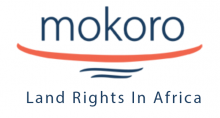Resource information
For many decades communities in West and Central Africa have been facing industrial oil palm plantations encroaching onto their community land. With the false promise of bringing ‘developmentand jobs;corporations;backed up by the support of the governments;have been granted millions of hectares of land under concessions for industrial oil palm plantations. The results of this expansion have been disastrous for communities living in and around these industrial plantations and in particular for women. In response;grassroots organizations and community leaders from across the region have been organising;mobilising;raising their voices;and networking among each other to stop this destructive and violent occupation of their land. At the heart of these struggles is the community desire to get their lands back. Exchanges with community activists involved in similar struggles helps to break the isolation and make visible the extent of violence that communities often face when confronting a multinational company and government armed forces.Article highlights 4 specific community struggles: communities in the Democratic Republic of Congo against PHC-Feronia (which recently changed owners to KKM);in Gabon against Olam Company;in Cameroon against Socapalm (which is owned by Socfin) and in Nigeria against Okomu Oil Palm Company (which is also owned by Socfin).


